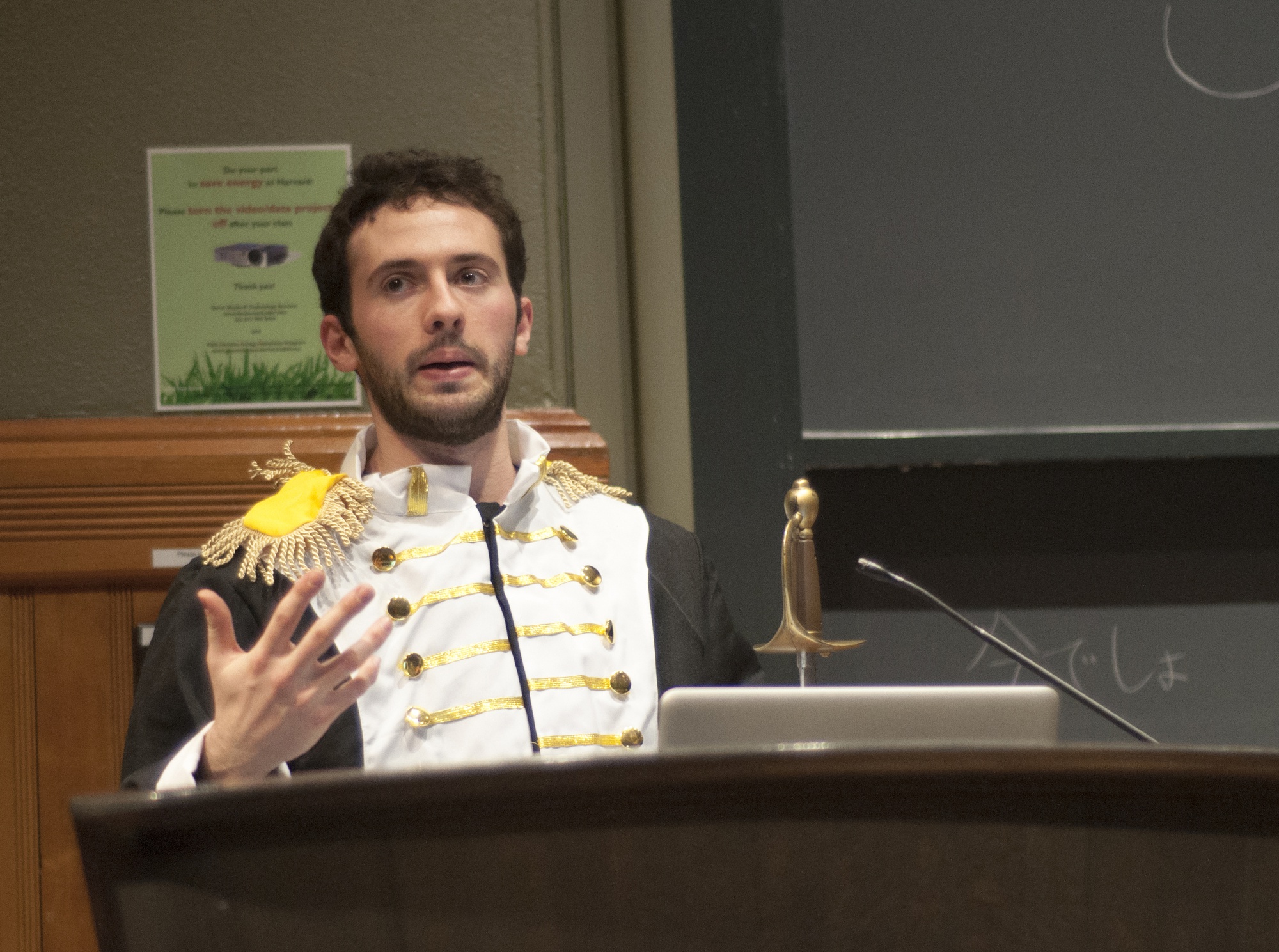
News
Summers Will Not Finish Semester of Teaching as Harvard Investigates Epstein Ties

News
Harvard College Students Report Favoring Divestment from Israel in HUA Survey

News
‘He Should Resign’: Harvard Undergrads Take Hard Line Against Summers Over Epstein Scandal

News
Harvard To Launch New Investigation Into Epstein’s Ties to Summers, Other University Affiliates

News
Harvard Students To Vote on Divestment From Israel in Inaugural HUA Election Survey
In First Meeting of the Year, UC Discusses Role As Advocate for Students


In the Undergraduate Council’s first meeting of the year, newly elected President Gus A. Mayopoulos ’15 and Vice President Sietse K. Goffard ’15 led a discussion Sunday night on the role of the UC as an advocate for students on issues such as referendum action items. UC officers also provided updates on initiatives for the new year, including the delivery of student funds by direct deposit and the creation of a more user-friendly website.
Humorously dressed in a military uniform and equipped with a plastic sword, Mayopoulos openly discussed the relationship between the UC and the student body.
“Everyone knows about this problem the UC has with student communication,” he said.
As one method to bolster the relationship between the UC and the student body, Mayopoulos—formerly the vice presidential candidate on the joke ticket that won the UC presidential election in November—outlined Operation Ghost Protocol, an initiative introduced in an email to the student body earlier this month. The protocol, which mandates UC representatives to be in the dining halls of the house they represent and communicate directly with students, will begin next Friday, he said.
Members then brainstormed ways in which the UC could be perceived as an advocacy group, rather than solely a means of financial support. Many members agreed that the Council should be more visible and launch programs that directly impact students and allow them to voice opinions.
“Are we just going to be the ‘big daddy’ on campus where we’re going to give all our money [to students]?” said Dhruv P. Goyal ’16, Ed ucation Committee chair. “We need to get out of that cocoon of doing things the conventional way.”
In recent years, referendum questions, typically voted on by students during the UC presidential election, have served as potential areas for advocacy from the Council. In legislation passed last spring, the UC adjusted its rules so that the Council is only required to write an official opinion on a passed referendum when half or more of the student population votes. Because less than half of all undergraduates voted in the fall election, the UC is not bound to write opinions for the four referendum questions considered, all of which passed.
Though representatives have already been assigned to compile opinions on the referenda related to a discounted transportation pass for students and gender-neutral housing, Council members debated about whether the UC is obligated to advocate for a ban on plastic water bottle sales and push for University endorsement of immigration reform policy.
Treasurer Meghamsh Kanuparthy ’16 cautioned the Council of the consequences of disregarding their rules and feeling obligated to take up the referenda issues.
“We set the thresholds for a reason,” he said. “We don’t want to be in a position where we are ignoring our own laws.”
Meanwhile, Dudley House representative Allison Gofman ’14 expressed concern about the students who had pushed for the initiatives, saying that the bottle ban activists would be “profoundly disappointed” if the Council did little to advocate their position. She later agreed to serve as the point person for presenting an opinion to the Council.
Still, Mayopoulos said that currently, the Council is still confused about exactly how to advocate for students.
“My concern is that we don’t really know what students are passionate about,” he said.
UC members also shared status updates on the Council’s initiatives for the year.
Kanuparthy discussed the problems the Council faced in distributing funds to student groups via direct deposit. Money does not always reach the accounts of organizations when students do not deposit checks, he said. And while the majority of Wintersession funds were granted using direct deposit, Kanuparthy said that because of concerns from both the Harvard administration and the UC, he could not confirm that the Council will definitely move to using only direct deposit.
In addition, Ava Nasrollahzadeh ’16, chair of the Student Relations Committee, announced that the new website, intended to be more user friendly, will be launched Monday.
—Staff writer Noah Delwiche can be reached at ndelwiche@college.harvard.edu.
Want to keep up with breaking news? Subscribe to our email newsletter.
